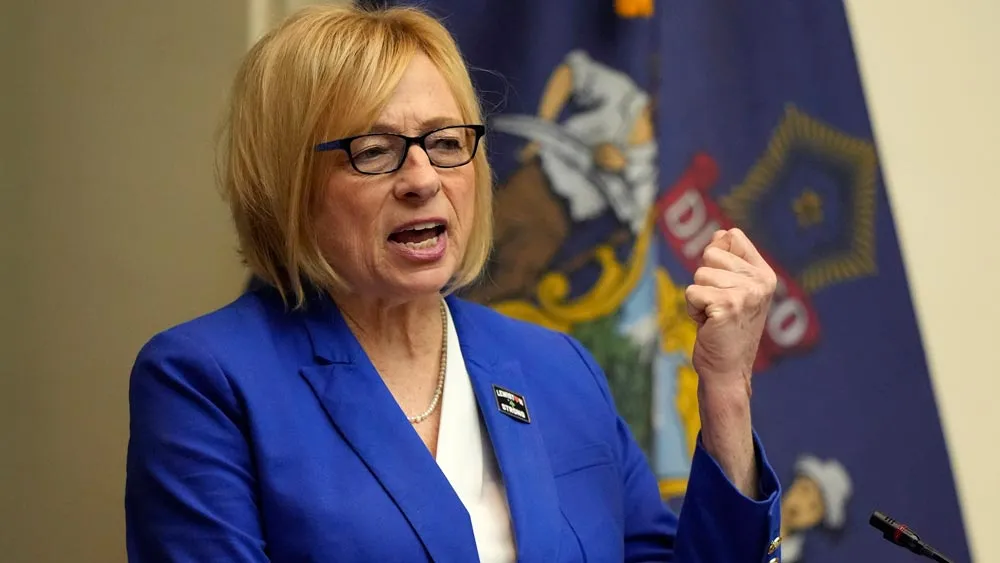July 17, 2013
Across the Nation, Protests Call for End to Gay Blood Ban
Winnie McCroy READ TIME: 4 MIN.
On July 12, gay men in 52 cities throughout the nation held a protest in an attempt to change the Food and Drug Administration's ban on gay men donating blood. By gathering at local blood donation centers, getting testing and attempting to donate blood, they hope to draw awareness of the amount of blood the gay community could contribute to the blood supply, should they change their current policy.
"Today, across the country in 52 cities, gay men are going to get tested and attempt to donate blood," said Anthony Mercurio, via a LiveStream video. "The gay blood ban has been in effect since 1984, based on some updated information that's not really scientific anymore. Today we're going to count up and see how many gay men attempt to donate blood and share stories, and see if we can change the FDA's regulations."
In Boston, Ian Placido said that the event was a success, noting that, "Twenty-one people turned out to get tested (all negative) and attempted to donate blood, and were then turned away. The Red Cross was aware of the day's event and was very supportive."
Placido said that although the City of Boston refused to grant them a permit to park a mobile testing unit on the street, the Courtyard Marriott was gracious enough to donate its boardroom in which to do testing.
In New York City, the Gay Men's Health Crisis provided free, confidential HIV testing in front of the New York Blood Center in partnership with the National Gay Blood Drive.
The Food and Drug Administration (FDA) currently bans any man who had sex with another man (MSM), even once, since 1977 from being allowed to donate blood. For several years, GMHC has been leading advocacy and public education efforts requesting that the FDA lift the ban and screen all potential donors equally for high-risk behavior, regardless of sexual orientation.
Currently, the FDA refuses to screen the blood of self-identified MSM. They automatically defer it as unsuitable, despite that the policy is scientifically outdated. The ban perpetuates negative stereotypes and stigma. Whether intentional or not, it is discrimination on the basis of sexual orientation and the FDA needs to revise its policy so that it focuses on sexual behavior instead, said GMHC.
"In June, the American Medical Association joined the American Association of Blood Banks, America's Blood Centers and the Red Cross in calling the lifetime MSM blood ban discriminatory and unnecessary," said Jason Cianciotto, Director of Public Policy at GMHC.
"Under the current policy, a heterosexual man who has sex with someone who is known to be HIV-positive is subject to a one-year deferral, while a gay or bisexual man who is HIV-negative and always practices safer sex is banned from donating blood for life," said Cianciotto. "GMHC continues to urge the FDA to follow the lead of nations including France, Spain and Italy that have adopted deferral policies based on comprehensive assessments, screening all prospective donors, regardless of sexual orientation, for high-risk practices."
In the LiveStream video below, gay men spoke about their hopes that the policy would be changed, remarking on the rapid HIV testing that allows for quick screening, and the hypocrisy in allowing sexually promiscuous heterosexuals from donating, while monogamous gay men were prohibited.
"There is still a lot of ignorance out there. You can live a full life with HIV, which a lot of people don't know," said Azariah Southworth. "A lot of education needs to take place. HIV is a livable disease; I would compare it to diabetes, with the exception that you can contract if from having sex with someone. The FDAs ban is completely unnecessary. It's irrelevant, and the fact that they are still stalling to lift this ban since 1999, speaks to the blatant discrimination that it really is."
Another man compared the policy to cutting off ones nose to spite his face, saying that the ill-advised policy was costing lives all over the nation from lack of blood donations.
"Every two seconds, a blood transfusion is needed," said a man named Ed. "How many million gay men are prevented from donating, and saving these lives?"
For more information on the gay blood ban protests, visit http://www.gayblooddrive.com/
Winnie McCroy is the Women on the EDGE Editor, HIV/Health Editor, and Assistant Entertainment Editor for EDGE Media Network, handling all women's news, HIV health stories and theater reviews throughout the U.S. She has contributed to other publications, including The Village Voice, Gay City News, Chelsea Now and The Advocate, and lives in Brooklyn, New York.


